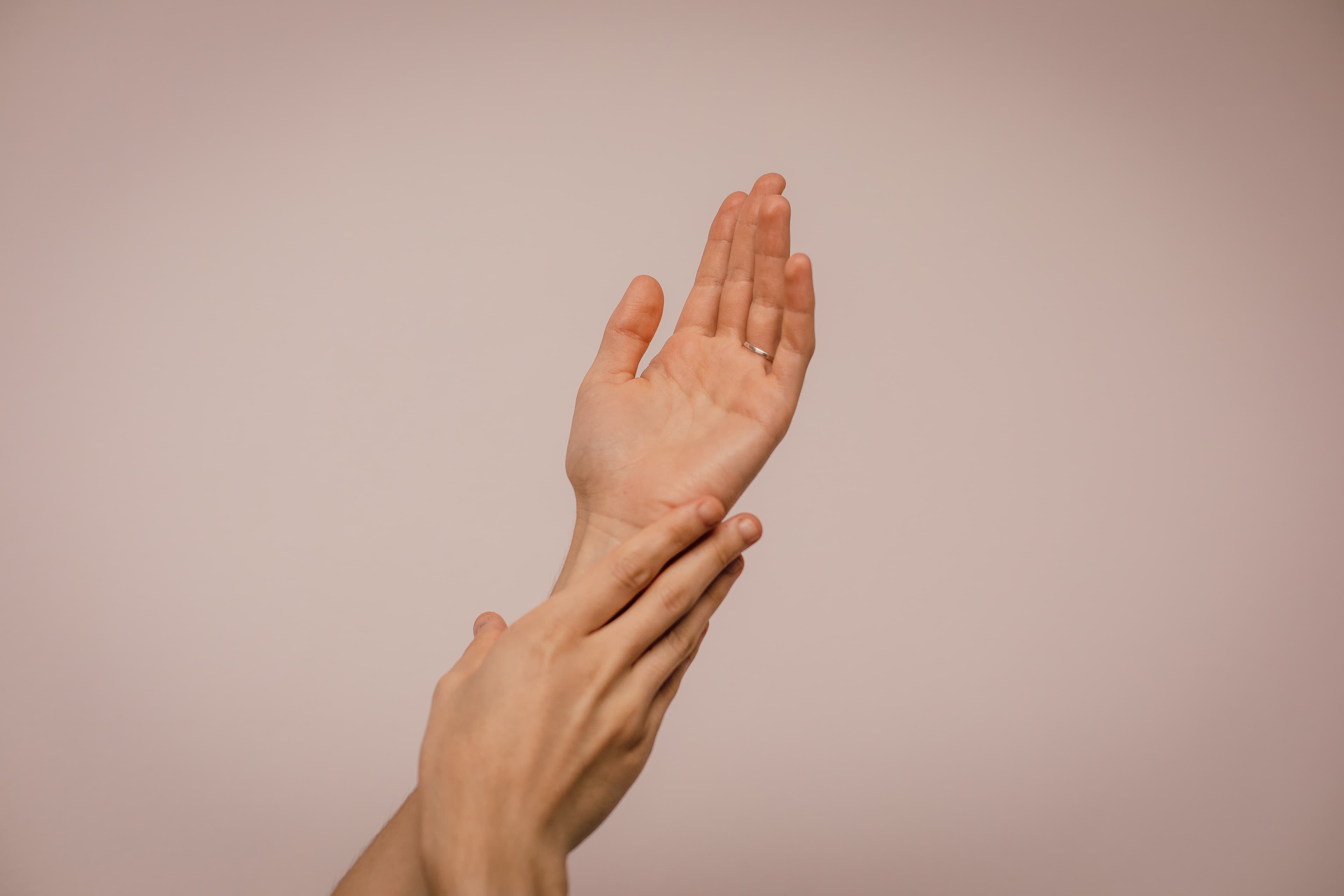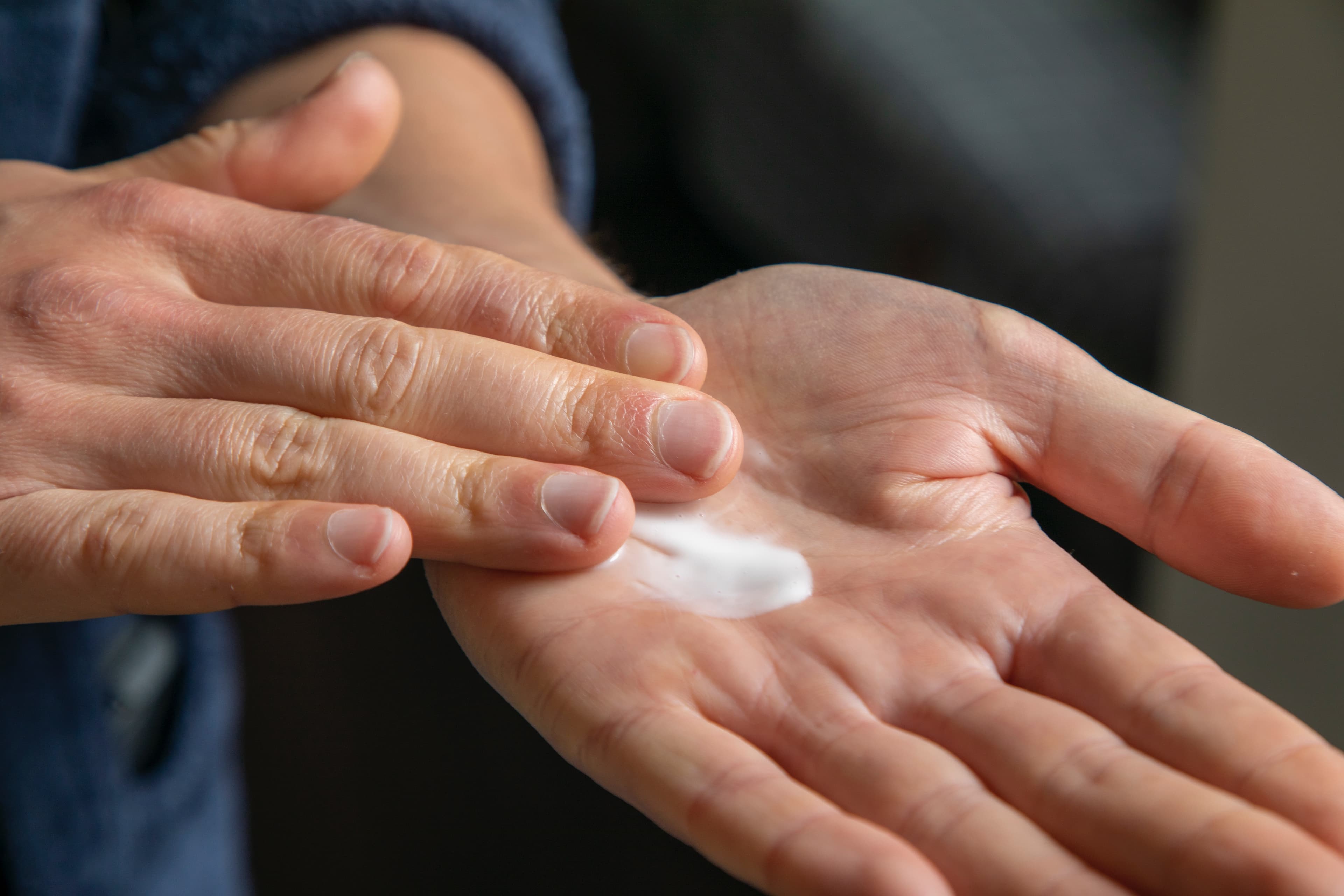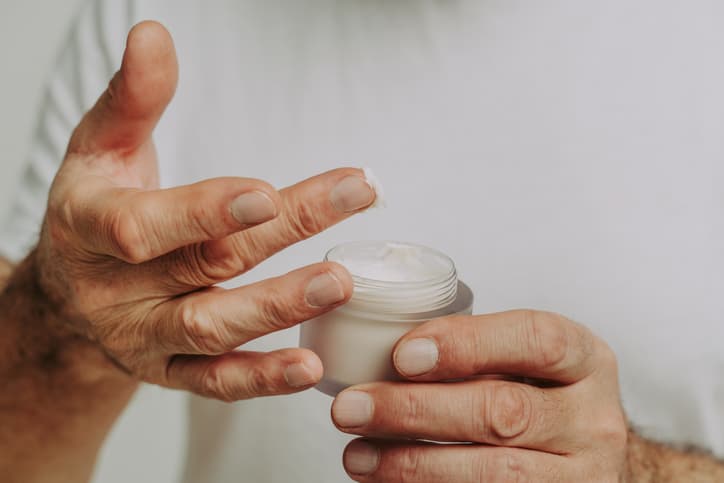How to Prevent Rashes and Skin Breakdown

Written by Lauren Caggiano on Wed Jan 18 2023.

Our skin is resilient and helps keep us protected from the elements. However, in some cases, lifestyle factors like being unable to move around freely or spending a great deal of time seated can damage our skin.
As a result, rashes and sores may develop. These injuries happen when there’s reduced blood supply to the skin, muscles, and fat. If using incontinence wear, sweat, urine, and feces can further irritate the skin and make for additional discomfort. Even an adult diaper that’s too snug can worsen the situation.
While changing adult diapers regularly and cleansing the area is a given, it’s sometimes not enough to prevent skin issues. You need a barrier, too. Here are a few simple steps on how to help a loved one’s skin with some extra TLC.
What You'll Need
1. Wipes
When changing incontinence wear, it's important to clean your loved one's buttocks and groin area to eliminate traces of urine and feces that can irritate the skin.
2. Cleansers
For extra cleansing, you can opt for lotion or foam cleaners to clean the skin in between changes.
3. Barrier Creams
These creams help create a protective layer between your loved one's sensitive areas and irritants. They also hydrate the skin and can help reduce irritation.
How to Prevent Incontinence-Caused Rashes
Step 1. Keep skin clean
This is an important step, as bacteria can cause infection, which is nothing to leave to chance. Change your loved one’s incontinence products regularly and use lotion/foam cleansers or wipes to clean skin. Be sure to wear gloves while providing incontinence care, which includes prompt cleansing. Wash hands before and afterward.
Step 2. Prioritize skin protection
Protect skin from the abrasive elements in stool and urine by applying skin protectants. You’ll want to look for ones containing zinc, glycerin, petrolatum, or dimethicone. For dryness, use creams and ointments after cleansing. Avoid putting cream or ointment on skin folds, as these are sensitive areas.
If your loved one has especially dry skin, they’ll benefit from products containing alpha hydroxy acid. However, be aware that these may cause a stinging sensation at first. Avoid products that contain alcohol, which can be drying. If your loved one is undergoing radiation therapy, it’s a good idea to confirm these products are safe. Reapply the cream or ointment after cleaning and drying the skin.
Pressure Injury Prevention Tips
Pressure injuries in the form of bedsores, pressure sores, or decubitus ulcers are treatable, but caregivers should act as soon as they’re discovered to prevent infection. For instance, it’s important to prioritize pressure redistribution over bony parts of the body by using air-filled overlays and seat cushions. This extra padding can help reduce injuries. Experts recommend shifting the person’s weight by using wedges, taking care to relieve pressure on any one area.
Keeping a watchful eye will be in your loved one’s best interest. Examine the skin for pressure sores daily and inform their care team if you have any concerns. A foul smell can signal that something is wrong, and they might need medical attention.
Don’t discount the power of proper nutrition in skin care. A healthy, well-balanced diet with enough calories and protein can help the skin’s appearance and health. Water intake is essential, too. Sometimes older people aren’t as inclined to drink as much as they need. This is why dehydration can be a problem that affects the body as a whole.
How to Handle a Rash
Rashes can happen, no matter how diligent you are about skin protection. If you notice such skin irritation, reach for some tried-and-true products. DermaRite PeriGuard Ointment is a moisture barrier ointment that can keep healthy and injured skin from direct contact with feces, urine, and wound drainage. Diaper rash creams containing zinc oxide and petroleum can help relieve symptoms.
Need more information?
Our friendly and supportive care specialists are here to help. Call (800) 696-CARE or send an email to support@carewell.com at any time. We’ll be happy to listen to your situation and make personalized recommendations based on your needs.
Other Articles You May Like

3 Best Lotions for Dry Diabetic Skin of 2025
Many common diabetic skin issues are treatable and preventable with proper care. We've researched and gathered top recommendations for creams and lotions for diabetic skin, including specialized products and other effective moisturizers. These selections are based on what real people with diabetes have found beneficial.
Medically Reviewed by Kiera Powell, R.N.

Summer Skin Care: 5 Quick Tips for Preventing Rashes and Odors
Pull-ups, underpads, and adult diapers make life as a family caregiver easier, but they can also increase the risk of rashes, odor, and skin irritation. Follow these tips to keep your loved one's skin healthy, happy, and irritant-free!
Read More >
Lauren Caggiano is an Indiana-based copywriter/editor, ACE certified personal trainer and ACE certified health coach. She has a passion for health and wellness and helping people live fuller and richer lives.